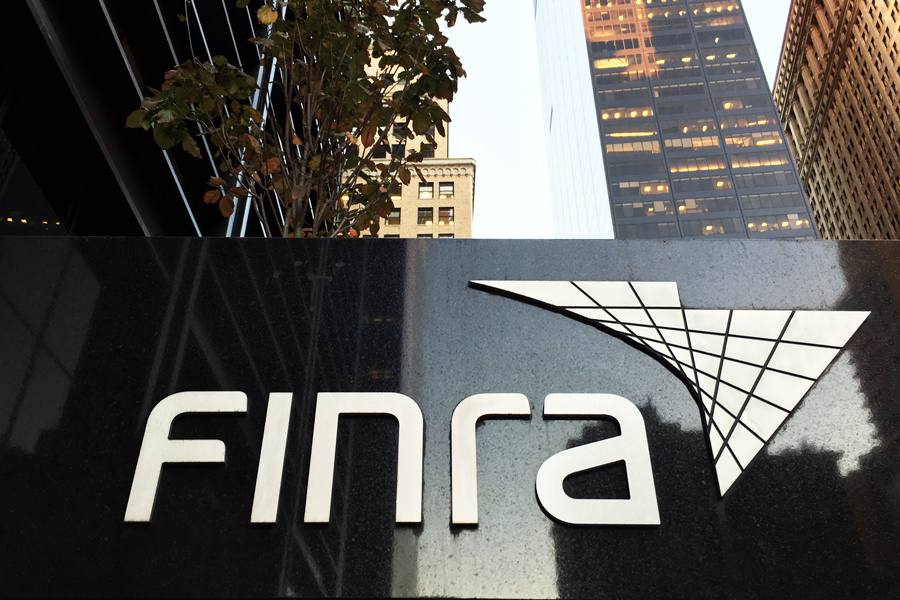

The Financial Industry Regulatory Authority Inc.'s first enforcement action related to Regulation Best Interest involved a small fine – $5,000 – but demonstrated the broker standard of conduct is giving the regulator more latitude to crackdown on excessive trading.
Finra charged a former broker, Charles V. Malico, with violating Reg BI “by recommending a series of transactions in the account of one retail customer that was excessive in light of the customer’s investment profile and therefore was not in that customer’s best interest,” the Oct. 11 settlement document states.
Finra alleged Malico’s conduct occurred from July 2020 through November 2021, when he worked for Network 1 Financial Services Inc. He recommended to a customer, a 63-year-old tax preparer who was not identified, that he make more than 350 trades in his account, which generated $54,000 in commissions and other trading costs. The customer, who earned $100,000 annually and had a liquid net worth of approximately $50,000, had an account balance of about $30,000.
“Malico frequently recommended that Customer A buy and then sell a security, only to repurchase the same security weeks or even days later,” the settlement states.
Trading to generate revenue contradicted Reg BI because it benefitted Malico and Network 1 but not the customer, Finra alleged. The standard of conduct prohibits brokers from putting their interests ahead of their customers’ interests.
Reg BI replaced the previous suitability standard that had governed brokers’ conduct with customers. The Securities and Exchange Commission rule, which has been in force since June 2020, was meant to provide stronger investor protection than suitability.
Susan Schroeder, a former Finra executive vice president and head of enforcement, said Finra’s initial Reg BI enforcement shows it gives the broker-dealer self-regulator a new avenue to address situations where brokers make trades to generate money for their own accounts.
Under the suitability rule, Finra would have had to prove a broker had control of the account in order to bring what is called a quantitative churning case, Schroeder said. The broker-dealer self-regulator also needed the cooperation of the customer to pursue a case.
Under Reg BI, Finra just needs to show customer recommendations resulted in an unusually high trading activity.
“It is thematically important,” said Schroeder, a partner at WilmerHale. “It reflects a significant change in the way that the suitability rule operates…that makes it easier for regulators to bring cases.”
The Finra action follows the first substantive SEC enforcement case involving Reg BI, which occurred in June. The SEC punished a brokerage for allegedly selling inappropriate, risky debt securities to retail customers.
In addition to the $5,000 fine, Finra prohibited Malico from working for a brokerage for six months. Malico, who left Network 1 in April and is not currently registered as a broker, did not admit nor deny the charges. An attempt to reach him was unsuccessful. Network 1 did not respond to a request for comment.
Finra is poised to take more Reg BI enforcement actions.
“Finra continues to focus on member firms’ compliance with Reg BI, both from an examination and enforcement standpoint as well as sharing resources to enhance firms’ compliance programs, such as the findings and effective practices noted in our 2022 report on Finra’s examination and risk monitoring program and more recently the discussion in our Finra Unscripted podcast,” Finra spokesperson Ray Pellecchia said in a statement.
Finra said its action originated from a review of a customer-initiated arbitration.
“They’re going to bring more of these cases based on the [trading] numbers,” Schroeder said.
[Read more: Finra moving to slimmed down headquarters in D.C.]

Relationships are key to our business but advisors are often slow to engage in specific activities designed to foster them.

Whichever path you go down, act now while you're still in control.

Pro-bitcoin professionals, however, say the cryptocurrency has ushered in change.

“LPL has evolved significantly over the last decade and still wants to scale up,” says one industry executive.

Survey findings from the Nationwide Retirement Institute offers pearls of planning wisdom from 60- to 65-year-olds, as well as insights into concerns.
Streamline your outreach with Aidentified's AI-driven solutions
This season’s market volatility: Positioning for rate relief, income growth and the AI rebound
